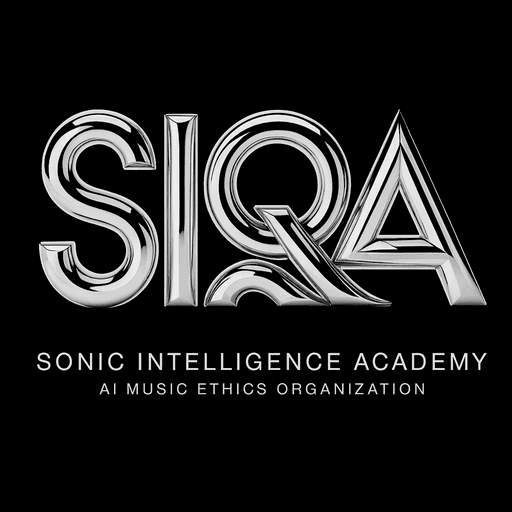


Credit: J. Amill Santiago (Unsplash)
RAP Act to Protect Artists' Lyrics Reintroduced in Congress
The bill aims to stop a legal tactic disproportionately affecting rap artists.
Congressman Hank Johnson (D-CA) and Congresswoman Sydney Kamlager-Dove (D-CA) have reintroduced the Restoring Artist Protection Act (RAP Act), which would prevent artists’ lyrics and creative works being used as evidence against them in court.
Backstory:
As per the Representatives’ press release, as of June 2025 researchers have identified more than 820 instances of creative works being used in criminal trials.
These cases often involve the rap genre, with a defendant’s lyrics being used as literal confession, despite the genre’s reputation for exaggeration, braggadocio, and playfulness.
The high-profile case against Young Thug, who was charged with running a criminal organization under RICO laws, is a recent example of a judge ruling that specific lyrics from the rapper and other YSL artists could be used as evidence.
As the media statement points out: “Freddie Mercury did not confess to having ‘just killed a man’ by putting ‘a gun against his head’ and pulling the trigger. Bob Marley did not confess to having shot a sheriff. And Johnny Cash did not confess to shooting ‘a man in Reno, just to watch him die.’”
Second time lucky:
Rep. Johnson and New York Democratic Rep. Jamaal Bowman first introduced the RAP Act in Congress in 2022.
The bill was never brought to a vote on the floor of the House.
Backers:
The RAP Act has received support from organizations such as the Recording Academy, the Recording Industry Association of America (RIAA), Atlantic Records, Universal Music Group, Live Nation Entertainment and more. The full list is here.
What they said:
Harvey Mason jr., CEO, Recording Academy: “Weaponizing lyrics or other creative works in court is a harmful tactic that stifles artistic expression and undermines the voices of not just musicians, but all who create and shape culture.”
He adds: “With the reintroduction of the RAP Act, we continue to build momentum for ending this unjust practice. The Recording Academy is grateful to our Congressional partners, Representatives Johnson and Kamlager-Dove, for their leadership on an issue that poses real harm to creators in music and beyond.”
Congressman Hank Johnson (D-CA) and Congresswoman Sydney Kamlager-Dove (D-CA) have reintroduced the Restoring Artist Protection Act (RAP Act), which would prevent artists’ lyrics and creative works being used as evidence against them in court.
Backstory:
As per the Representatives’ press release, as of June 2025 researchers have identified more than 820 instances of creative works being used in criminal trials.
These cases often involve the rap genre, with a defendant’s lyrics being used as literal confession, despite the genre’s reputation for exaggeration, braggadocio, and playfulness.
The high-profile case against Young Thug, who was charged with running a criminal organization under RICO laws, is a recent example of a judge ruling that specific lyrics from the rapper and other YSL artists could be used as evidence.
As the media statement points out: “Freddie Mercury did not confess to having ‘just killed a man’ by putting ‘a gun against his head’ and pulling the trigger. Bob Marley did not confess to having shot a sheriff. And Johnny Cash did not confess to shooting ‘a man in Reno, just to watch him die.’”
Second time lucky:
Rep. Johnson and New York Democratic Rep. Jamaal Bowman first introduced the RAP Act in Congress in 2022.
The bill was never brought to a vote on the floor of the House.
Backers:
The RAP Act has received support from organizations such as the Recording Academy, the Recording Industry Association of America (RIAA), Atlantic Records, Universal Music Group, Live Nation Entertainment and more. The full list is here.
What they said:
Harvey Mason jr., CEO, Recording Academy: “Weaponizing lyrics or other creative works in court is a harmful tactic that stifles artistic expression and undermines the voices of not just musicians, but all who create and shape culture.”
He adds: “With the reintroduction of the RAP Act, we continue to build momentum for ending this unjust practice. The Recording Academy is grateful to our Congressional partners, Representatives Johnson and Kamlager-Dove, for their leadership on an issue that poses real harm to creators in music and beyond.”
Congressman Hank Johnson (D-CA) and Congresswoman Sydney Kamlager-Dove (D-CA) have reintroduced the Restoring Artist Protection Act (RAP Act), which would prevent artists’ lyrics and creative works being used as evidence against them in court.
Backstory:
As per the Representatives’ press release, as of June 2025 researchers have identified more than 820 instances of creative works being used in criminal trials.
These cases often involve the rap genre, with a defendant’s lyrics being used as literal confession, despite the genre’s reputation for exaggeration, braggadocio, and playfulness.
The high-profile case against Young Thug, who was charged with running a criminal organization under RICO laws, is a recent example of a judge ruling that specific lyrics from the rapper and other YSL artists could be used as evidence.
As the media statement points out: “Freddie Mercury did not confess to having ‘just killed a man’ by putting ‘a gun against his head’ and pulling the trigger. Bob Marley did not confess to having shot a sheriff. And Johnny Cash did not confess to shooting ‘a man in Reno, just to watch him die.’”
Second time lucky:
Rep. Johnson and New York Democratic Rep. Jamaal Bowman first introduced the RAP Act in Congress in 2022.
The bill was never brought to a vote on the floor of the House.
Backers:
The RAP Act has received support from organizations such as the Recording Academy, the Recording Industry Association of America (RIAA), Atlantic Records, Universal Music Group, Live Nation Entertainment and more. The full list is here.
What they said:
Harvey Mason jr., CEO, Recording Academy: “Weaponizing lyrics or other creative works in court is a harmful tactic that stifles artistic expression and undermines the voices of not just musicians, but all who create and shape culture.”
He adds: “With the reintroduction of the RAP Act, we continue to build momentum for ending this unjust practice. The Recording Academy is grateful to our Congressional partners, Representatives Johnson and Kamlager-Dove, for their leadership on an issue that poses real harm to creators in music and beyond.”
Hank Johnson
Sydney Kamlager-Dove
RAP Act
Young Thug
YSL
Jamaal Bowman
Recording Academy
RIAA
Harvey Mason Jr.
Live Nation Entertainment
Artist Lawsuits and Legal Battles
High-Profile Artist Litigation
Industry Litigation
Rising Tide of Music Litigation
Legal Scrutiny Of Major Artists
Music Industry Legal Battles
Legislative Protection For Lyrics
Copyright Policy
Criminal Cases
Litigation
Major Labels
Policy & Legal
Record Labels
Artistic Expression Protection
United States
👋 Disclosures & Transparency Block
- This story was written with information sourced from the Representatives’ press release, with additional reporting by Music Business Worldwide.
- We covered it because of the legal implications of the case.
📨 Subscribe to NIF
Get news dropped in your inbox 👇
📨 Subscribe to NIF
Get news dropped in your inbox 👇
Related Articles

Policy & Legal
Jan 27, 2026
1 min read
Music Publisher Wixen Sues Meta, Claiming Brazen Tactics to Replace Songwriters with AI
The publisher says Meta has been strong-arming the publisher to take incredibly low royalties

Policy & Legal
Jan 27, 2026
1 min read
Neptunes’ Pharrell Williams and Chad Hugo in Royalty Dispute
Hugo alleges his former production partner owes him $1 million

Policy & Legal
Jan 26, 2026
1 min read
Kid Rock to Appear Before US Senate on Ticketing and Scalping
The hearing will focus on ticket sales practices and the impact of bots

Music Publisher Wixen Sues Meta, Claiming Brazen Tactics to Replace Songwriters with AI
The publisher says Meta has been strong-arming the publisher to take incredibly low royalties

Harry Levin
Policy
Jan 27, 2026

Neptunes’ Pharrell Williams and Chad Hugo in Royalty Dispute
Hugo alleges his former production partner owes him $1 million

Rod Yates
Policy
Jan 27, 2026

Kid Rock to Appear Before US Senate on Ticketing and Scalping
The hearing will focus on ticket sales practices and the impact of bots

Rod Yates
Policy
Jan 26, 2026

NVIDIA Accused of Training Its AI on Anna’s Archive
The allegation follows its “responsible AI” deal with UMG

Rod Yates
Policy
Jan 26, 2026

Jason Aldean, Cyndi Lauper Lead Responsible AI Declaration
800 creatives declare “stealing our work is not innovation”

Rod Yates
Policy
Jan 23, 2026

Eventim Germany to Issue €20 Vouchers to Customers Following Lawsuit
The class action related to COVID-era refunds

Rod Yates
Policy
Jan 21, 2026





